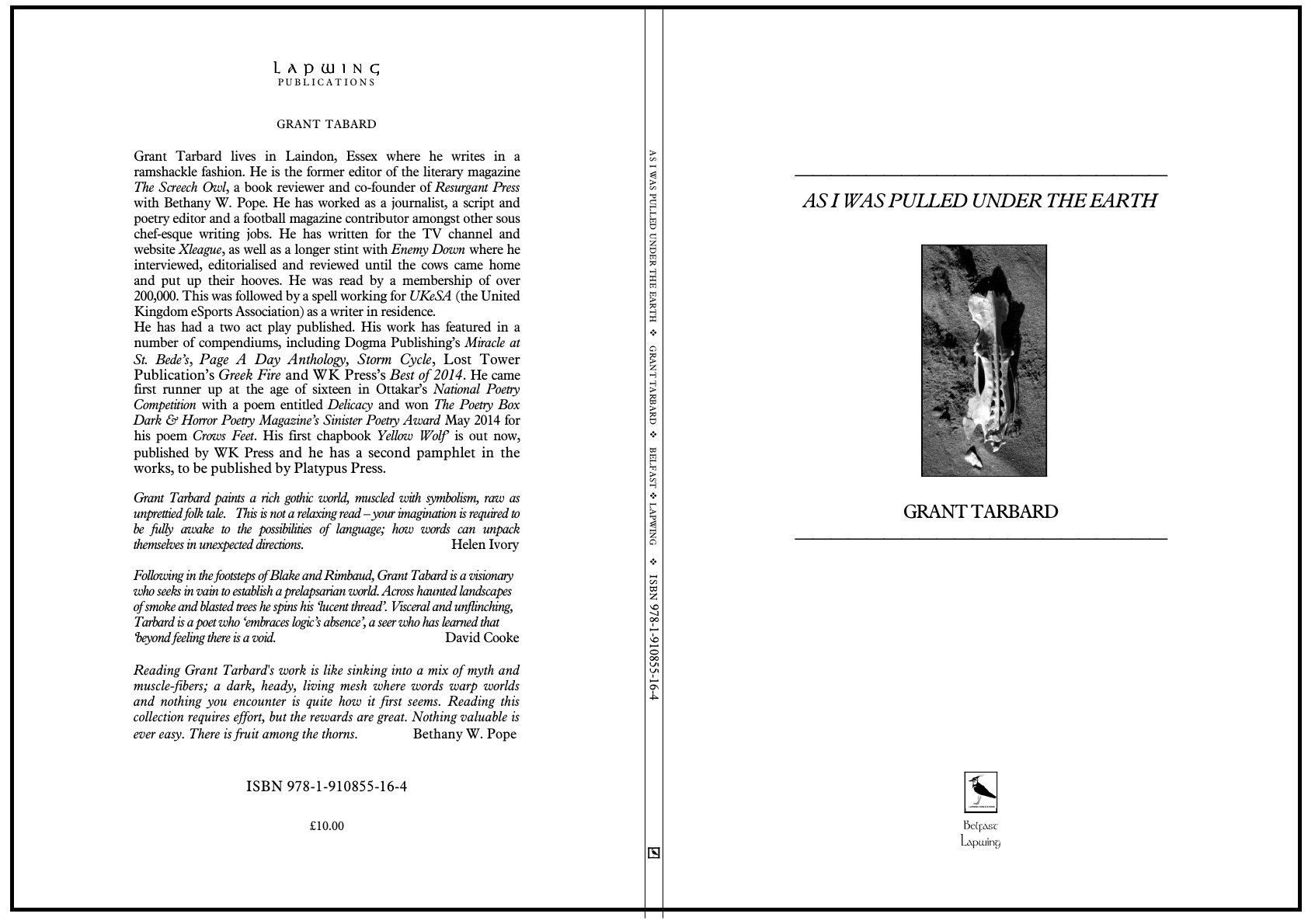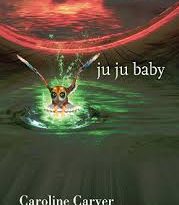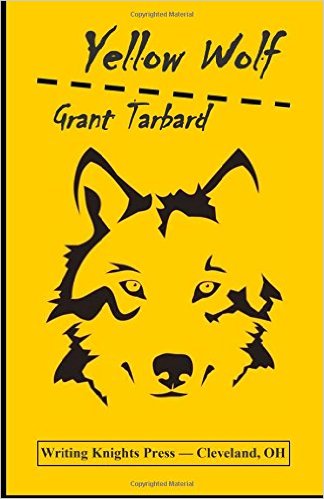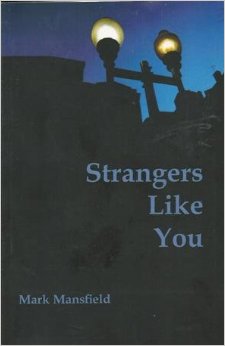As I Was Pulled Under The Earth by Grant Tarbard
– Reviewed by Charlie Baylis –
As I Was Pulled Under the Earth is a collection of poetry by former computer game journalist and editor of The Screech Owl, Grant Tarbard. It follows his quirky-looking pamphlet about a wolf, a Yellow Wolf, to be precise.
The most immediate eccentricity of As I Was Pulled Under the Earth is that all the poems are centre aligned, so they appear on the page like this:
There is no sound
beyond that smoke wafting
through the crutches of an old man,for tears that are smoke
run easy, a stones throw from the artificial aortas
of a far off few, of melancholic ghosts[from ‘the Dog Whistle’]
I am not sure of the intended effect of this particular arrangement. I have nothing against experimentation or peculiarity, but this choice seems slightly unnecessary. Perhaps other readers will enjoy the novelty; however, on investigating Tarbard’s poems in the magazines where they were first published, I find they were originally left aligned. Whilst there’s nothing wrong with having a poem or two with a different alignment, a whole collection of centre aligned poems that were probably written left aligned makes little sense.
Grant Tarbard has clearly put a lot of effort into finding words, subjects and structures on which to hang his verse. The poems are admirable in the way a chair is admirable. There is a strength and a durability, a certain muscular style, but somehow a more refined allure is missing. A cursory look through the collection unveils various typographical errors: “Tremble, putt he satisfaction in my death of groans” where the pronoun should be his and I’m not entirely sure if the putt takes place on a golf course, “conspiring under the dominion of a witches tongue” where there should have been an apostrophe; “buried in a avalanche of gold” should be an avalanche. Small gripes, but mistakes like this add up and detract from the work as a whole. Obviously a lot of long hours have gone into the making of these poems, so it is a pity these small blemishes have gone unnoticed.
Tarbard’s poetry is also informed by a Blake-like melancholic spirit. He spends a fair amount of time in graveyards, battlefields and funeral parlours. In the title poem he is buried alive:
My rosé breath bronzed,
I gagged on gold dust
and bone china teeth,
The language here is rich and inventive, however there is a slight disharmony in meaning: if his breath is bronzed, why did he gag on gold? Perhaps his breath could have gilded, which would also have added to the alliteration. There are some very good visuals in his work; in the poem ‘Walkabout (i)’ there is “a deep yellow ocean sinking constantly in sunrise / like Lolita in her innocent longing to be grown.” Should that line read Lolita in her innocence? Many poets have imagined the sea longing for something, but what does it mean for the sea to be longing for adulthood? Is the sea pining for nightfall? Does it want to marry and settle down? We are left with the slightly strange idea of the sea as Lolita, a young girl who, rather than longing to be grown, had her childhood stolen from her.
Overall I get the impression that Grant Tarbard is a poet who values words over meaning. This is not necessarily a bad thing – many critics made the same observation about the young Dylan Thomas. The challenge is then to be as a good with words as Dylan Thomas was. Not an easy task, but perhaps not impossible. In ‘Under the Perfumed Veil of the Banshee’ he does sounds a little like the mercurial Welshman:
I open up a seed with a church key,
into old silence, split soil I do pray,
bury me in the freedom of the sea.Sea arms raise the low lit dead from one knee,
from a rocking horse sea that formed from clay,
under the perfumed veil of the banshee
Tarbard’s ‘rocking horse sea’ has the same wavy motion of Dylan Thomas’ ‘sea-saw sea’ and the line “Sea arms raise the low lit dead from one knee” strikes at a similar sense to “Though they sink through the sea they shall rise again”, from Thomas’ much loved and slightly overblown ‘Death Shall Have No Dominion’.
Grant Tarbard is a competent poet, and As I Was Pulled Under the Earth is a decent first collection, that would have greatly benefited from more stringent proofreading. There is every chance Tarbard will improve; a great deal of potential is on display here. I hope it can be put to good use.





